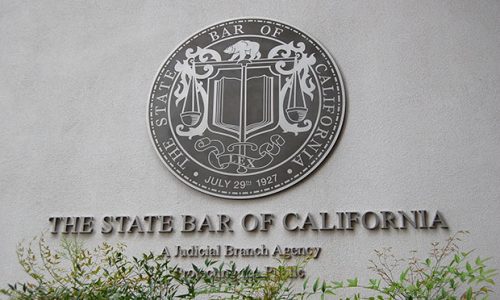

By Michael McCutcheon, Zainab Antepli and Marisol Franco
LOS ANGELES, CA – The State Bar of California Board of Trustees late last week announced a 45-day public comment period for two alternatives to a proposed rule that would require California attorneys to report the misconduct of fellow attorneys.
As stated by the Board Chair Ruben Duran, “We want to hear from the public about whether it is time for California to join the rest of the nation in implementing some version of a rule establishing a duty for attorneys to report misconduct by their professional peers. I believe the public we are mandated to protect will be the ultimate beneficiaries of this proactive effort.”
According to a news release by the State Bar of California, “California is the only state that has yet to adopt some version of the American Bar Association (ABA) Model Rule 8.3, which establishes a duty to report misconduct that ‘raises a substantial question as to the lawyer’s honesty, trustworthiness, or fitness as a lawyer in other respects.’”
The statement added, “California has twice considered and rejected such a rule [since 2010] due to concerns raised by attorneys.”
As such, alternatives to the rule proposed by the staff of the Board are also being considered.
“Both alternatives require reporting if a lawyer knows of credible evidence of misconduct,” said the State Bar in its statement, adding, “The primary differences between the two alternatives are the types of conduct that must be reported and the trigger for that mandatory reporting.”
The first alternative version noted requires the reporting “of criminal acts, fraud, or misappropriation of funds,” or, “if the conduct raises a substantial question as to an attorney’s honesty, trustworthiness, or fitness as an attorney in other respects.”
The second alternative version “expands the type of conduct that must be reported to include acts of dishonesty, deceit, and misrepresentation…The duty to report criminal acts arises only if such acts reflect adversely on an attorney’s honesty, trustworthiness, or fitness as an attorney in other respects.”
Both versions, said the State Bar, include the provision that the reporting cannot disclose any sensitive information that is already protected by other laws, including client confidentiality and attorney-client privileges. Within this provision, other information such as if the participating lawyer is enrolled in any mental health programs or substance use also cannot be disclosed.
Also under consideration in the state legislature is Senate Bill 42, which “would establish a statutory duty for attorneys to report misconduct by other attorneys.” The bill in its present form “reflects the same duty to report as outlined in ABA Model Rule 8.3,” according to the State Bar’s news release.
The meeting, added the Bar, also saw the preview of efforts “to strengthen the State Bar’s whistleblower and whistleblower retaliation policy.”
The State Bar concluded, “the Board is expected to consider the public input and rule proposal at its May meeting before sending a proposed rule to the California Supreme Court for its consideration. The Supreme Court must approve a rule before it becomes final.”